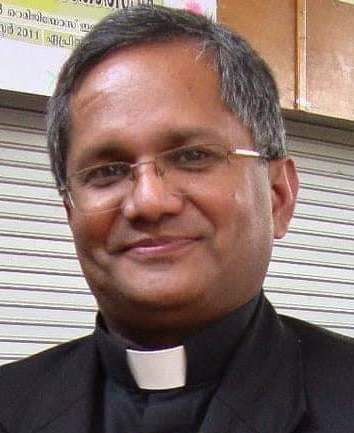The journey back to home; the story of a touching prayer song….
Pope Benedict XVI declared Cardinal John Henry Newman 'Blessed' on 19 October 2010 at Birmingham, England, before a strong congregation of over 70,000 people. Newman's life (1801-1890) spanned most of the 19th century. Converting from Anglicanism to Catholicism at the age of 44, he wrote powerfully under both religious affiliations. It is said that as a literary workaholic, he prayed with a pen in his hand. His motto was “Heart speaks unto Heart” as what he wrote came straight from his heart, touching and profoundly transforming the heart of millions of people.
Among many volumes of prose and poems, his verses “the Pillar of Cloud” more popularly known by its first words “Lead Kindly Light” he wrote in 1833 ranks among the best. As a young priest John Henry Newman fell sick in Italy and was unable to travel back home to England. He describes the situation in his own words: “Before starting from my inn, I sat down on my bed and began to sob bitterly. My servant, who had acted as my nurse, asked what ailed me. I could only answer: 'I have a work to do in England'. I was aching to get home, yet for want of a vessel I was kept at Palermo for three weeks... At last I go off in an orange boat bound for Marseilles. We were becalmed for whole week in the Straits of Bonifacio, and it was there that I wrote these lines, 'Lead Kindly Light'.”
Lead, kindly Light, amid th’encircling gloom, lead Thou me on!
The night is dark, and I am far from home; lead Thou me on!
Keep Thou my feet; I do not ask to see
The distant scene; one step enough for me.
I was not ever thus, nor prayed that Thou shouldst lead me on;
I loved to choose and see my path; but now lead Thou me on!
I loved the garish day, and, spite of fears,
Pride ruled my will. Remember not past years!
So long Thy power hath blest me, sure it still will lead me on.
O’er moor and fen, o’er crag and torrent, till the night is gone,
And with the morn those angel faces smile, which I Have loved long since, and lost awhile!
Although the poem expresses Newman's longing to be home, it expresses his deeper yearning to be united with God in heaven. The situation of being away from home represents darkness, perils and struggles of this world. People can be so much overcome by this world's attractions that they, in their pride, forget their true home. He acknowledges his own pride that made him lose sight of his destiny for a while. He pleads God not to remember the past years, but lead him again so that he can be where the 'angel faces smile'. May Blessed John Henry Newman's own life be a light to the world today!














